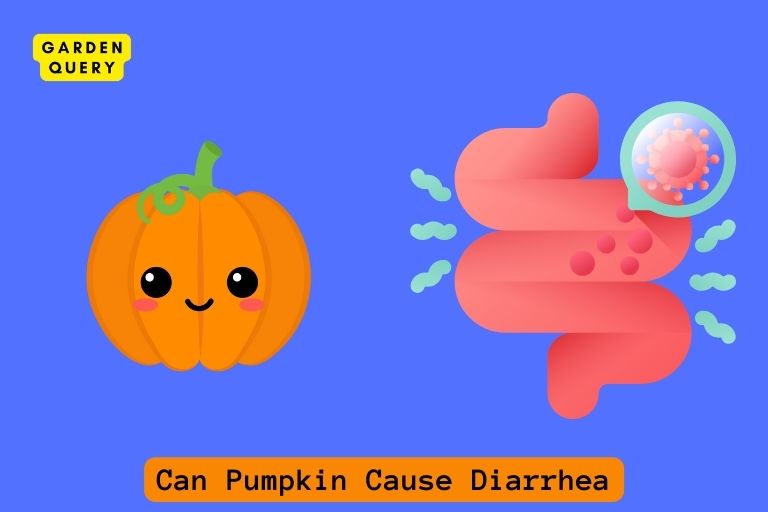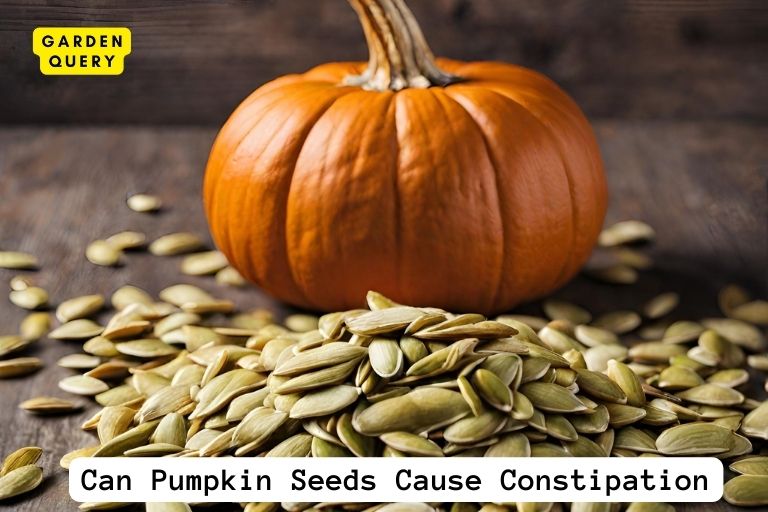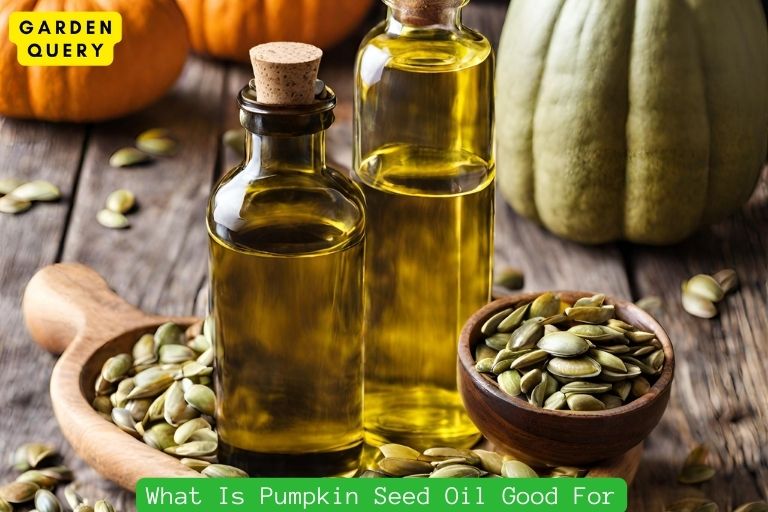Can Pumpkin Cause Diarrhea?
Yes, in some cases, excessive consumption of pumpkin, especially the seeds, can lead to diarrhea due to their high fiber content.
While pumpkin is generally well-tolerated, consuming large quantities of pumpkin seeds, in particular, can contribute to increased fiber intake, causing digestive issues like diarrhea. The high fiber content in pumpkin seeds acts as a natural laxative, promoting bowel movements.
It’s important to moderate pumpkin seed intake, especially for individuals with sensitive stomachs or those unaccustomed to a high-fiber diet. Balancing pumpkin consumption with other dietary components can mitigate the risk of digestive discomfort. Additionally, cooking or roasting pumpkin seeds may make them easier to digest, reducing the likelihood of causing diarrhea.
Key Takeaway
Pumpkin and Diarrhea: Understanding the Connection
Introduction
Have you ever wondered if pumpkin can cause diarrhea? As an advocate for digestive health, it’s essential to understand the foods we consume and their potential effects on our bodies. Let’s dive into the topic and explore the connection between pumpkin and diarrhea.

Understanding the connection between pumpkin and diarrhea
Contrary to popular belief, pumpkin is generally not a direct cause of diarrhea. In fact, it can actually have the opposite effect. Pumpkin is rich in fiber, particularly soluble fiber, which aids in softening the stool and promoting regular bowel movements. This can be helpful in alleviating constipation and maintaining a healthy digestive system.
However, individuals with sensitive digestive systems or those who consume excessive amounts of pumpkin in a short period may experience diarrhea. The high fiber content can overwhelm the digestive system and lead to loose stools. It’s important to incorporate pumpkin into your diet gradually, allowing your body to adjust and avoid any potential digestive issues.
The importance of a balanced diet for digestive health
While pumpkin is generally considered a healthy addition to a balanced diet, it’s crucial to remember that a well-rounded approach to nutrition is key for maintaining digestive health.
A balanced diet should consist of a variety of fruits, vegetables, whole grains, and lean proteins. This combination ensures that your body receives the necessary nutrients, vitamins, and minerals for optimal functioning. By incorporating pumpkin into an already balanced diet, you can reap the benefits without experiencing any adverse effects on your digestive system.
Additionally, hydration is an essential aspect of digestive health. Water helps to keep stools soft and prevent constipation. Be sure to drink an adequate amount of water daily, especially when increasing your fiber intake. This will help maintain a healthy digestive system and minimize any potential digestive discomfort related to consuming pumpkin or any other fiber-rich foods.
In summary, pumpkin is generally not a direct cause of diarrhea. Its high fiber content can actually aid in promoting regular bowel movements. However, individuals with sensitive digestive systems or those who consume excessive amounts of pumpkin may experience diarrhea. It’s crucial to maintain a balanced diet that incorporates a variety of nutrient-rich foods and to gradually introduce pumpkin to avoid any digestive discomfort. Remember to stay hydrated and listen to your body’s needs for optimal digestive health.
Nutritional Value of Pumpkin
Pumpkin, with its vibrant orange color and distinct flavor, is a popular ingredient in various dishes, especially during the fall season. While it is known for its delicious taste and versatility, some individuals may wonder if consuming pumpkin can cause digestive issues, particularly diarrhea. Let’s delve into the nutritional value of pumpkin and its potential effects on the digestive system.
Pumpkin’s nutritional composition
Pumpkin is a nutrient-rich food that offers several health benefits. It is low in calories but packed with essential vitamins and minerals. A one-cup serving of cooked, mashed pumpkin contains approximately:
- Vitamin A: Pumpkin is an excellent source of vitamin A, providing over 200% of the recommended daily intake. Vitamin A plays a crucial role in maintaining healthy skin, vision, and immune function.
- Fiber: Pumpkin is a good source of dietary fiber, with around 3 grams per cup. Fiber aids in promoting healthy digestion, preventing constipation, and regulating bowel movements.
- Antioxidants: Pumpkin contains antioxidants like beta-carotene, lutein, and zeaxanthin. These compounds help protect the body against oxidative stress and reduce the risk of chronic diseases.
- Potassium: Pumpkin is rich in potassium, an essential mineral that supports proper muscle and nerve function, as well as maintaining healthy blood pressure levels.
The role of fiber in digestive health
Fiber is a crucial component of a balanced diet and plays a vital role in maintaining good digestive health. It adds bulk to stools, which helps promote regular bowel movements and prevent constipation. However, consuming excessive amounts of fiber, especially if your body is not accustomed to it, may lead to loose stools or diarrhea.
While pumpkin does contain fiber, the amount consumed and individual tolerance levels may vary. If you experience diarrhea after consuming pumpkin, it could be due to consuming too much fiber at once or having a sensitivity to it. Gradually introducing fiber-rich foods into your diet and ensuring adequate hydration can help prevent digestive discomfort.
It is worth noting that pumpkin seeds, often used for their nutritional benefits, are also rich in fiber. If you experience digestive issues after consuming pumpkin seeds, it may be necessary to adjust your consumption or consult a healthcare professional for personalized advice.
In conclusion, pumpkin is a nutritious food that can provide numerous health benefits. While it contains fiber, which is essential for digestive health, consuming excessive amounts of fiber or having a sensitivity to it may cause diarrhea in some individuals. As with any dietary concerns, it is always best to listen to your body and make adjustments accordingly. If you experience persistent digestive issues, it is recommended to seek medical advice for an accurate diagnosis and appropriate treatment.
Can Pumpkin Cause Diarrhea?
Common causes of diarrhea
Diarrhea is a common gastrointestinal symptom that can vary in severity and duration. It occurs when the digestive system is not able to absorb water and nutrients properly, leading to loose and watery stools. There are numerous causes of diarrhea, including viral or bacterial infections, medication side effects, and certain medical conditions.
Possible reasons for pumpkin-induced diarrhea
While pumpkin is generally considered a healthy and nutritious food, there are a few reasons why it could potentially cause diarrhea in some individuals.
- High Fiber Content: Pumpkin is rich in fiber, which is beneficial for digestive health. However, consuming excessive amounts of fiber, especially for individuals with sensitive digestive systems, can lead to diarrhea. It is important to introduce fiber gradually into the diet and ensure adequate water intake to avoid digestive disturbances.
- Fructose Intolerance: Some individuals have difficulty digesting fructose, a natural sugar found in fruits and vegetables, including pumpkin. When fructose is not properly absorbed, it can cause diarrhea. If you suspect fructose intolerance, it is advisable to consult a healthcare professional for proper diagnosis and guidance.
- Allergies or Sensitivities: While uncommon, some individuals may have an allergic reaction or sensitivity to pumpkin. This can manifest as gastrointestinal symptoms, including diarrhea. If you experience gastrointestinal discomfort after consuming pumpkin, it is recommended to consult an allergist or healthcare professional for appropriate testing.
- Contamination: In rare cases, contaminated or spoiled pumpkin can cause gastrointestinal issues, including diarrhea. It is important to ensure that the pumpkin is fresh and properly stored before consumption. If you suspect food poisoning or contamination, seek medical attention if symptoms persist or worsen.
It is important to note that while pumpkin can potentially cause diarrhea in some individuals, it is generally well-tolerated and offers numerous health benefits. To minimize the risk of experiencing digestive issues, it is advisable to consume pumpkin in moderation and be mindful of any personal sensitivities or allergies.
In conclusion, while pumpkin can cause diarrhea in some individuals, it is not a common occurrence. It is important to consider other potential causes of diarrhea and consult a healthcare professional if symptoms persist or worsen. As with any dietary concern, individual factors and sensitivities may vary, so it is important to listen to your body and make informed choices about your diet.
Benefits of Pumpkin for Digestive Health
Pumpkin is not only a favored ingredient for fall recipes, but it also offers numerous benefits for digestive health. Many people wonder, can pumpkin cause diarrhea? The short answer is no. In fact, pumpkin can actually help alleviate digestive issues. Let’s explore how pumpkin can support a healthy digestive system.
Pumpkin’s potential positive effects on digestion
- High fiber content: Pumpkin is packed with fiber, both soluble and insoluble. This makes it an excellent choice for promoting regular bowel movements and preventing constipation. The fiber in pumpkin helps to add bulk to the stool, improving digestion and reducing the risk of diarrhea.
- Nutrient-rich: Pumpkin is a rich source of vitamins, minerals, and antioxidants that can support overall digestive health. It contains vitamins A, C, and E, which can help reduce inflammation in the gut and support the growth of healthy bacteria.
- Anti-inflammatory properties: The antioxidants found in pumpkin, such as beta-carotene, can help reduce inflammation in the gastrointestinal tract. This can be particularly beneficial for individuals with conditions like inflammatory bowel disease (IBD) or irritable bowel syndrome (IBS).
How pumpkin can help regulate bowel movements
- Relieves constipation: Due to its high fiber content, pumpkin can help regulate bowel movements and relieve constipation. The fiber acts as a natural bulking agent, adding bulk to the stool and promoting regularity.
- Stool consistency: Pumpkin can also help regulate stool consistency. It contains a significant amount of water, which helps soften the stool and make it easier to pass. This can be particularly helpful for individuals with diarrhea, as it can help firm up the stool.
- Supports gut health: The fiber and nutrients found in pumpkin can help promote the growth of beneficial bacteria in the gut. This can contribute to a healthy gut microbiome, which plays a crucial role in digestion and overall digestive health.
It’s important to note that while pumpkin can be beneficial for digestive health, it may not be suitable for everyone. Some individuals may have specific dietary restrictions or sensitivities that make consuming pumpkin problematic. It’s always best to consult with a healthcare professional or registered dietitian before making any significant changes to your diet.
In conclusion, pumpkin can be an excellent addition to a healthy diet, offering numerous benefits for digestive health. From its high fiber content to its anti-inflammatory properties, pumpkin can help regulate bowel movements and support overall gut health. So, don’t hesitate to include this versatile and nutritious ingredient in your meals to promote a happy and healthy digestive system.
Managing Pumpkin-Related Diarrhea
Tips for introducing pumpkin into your diet without causing diarrhea
Adding pumpkin to your diet can be a tasty and nutritious choice. However, some individuals may experience digestive issues, specifically diarrhea, after consuming pumpkin. If you want to enjoy the benefits of pumpkin without the uncomfortable side effects, here are some tips for introducing pumpkin into your diet without causing diarrhea:
- Start small: Begin by consuming a small amount of pumpkin and gradually increase the quantity over time. This allows your digestive system to adjust to the new food.
- Cook or bake it: Cooking or baking pumpkin can make it easier to digest. Roasting or steaming pumpkin can help break down the fibers, making it gentler on your stomach.
- Combine it with other foods: Mix pumpkin with other ingredients that are gentle on the stomach, such as yogurt or oatmeal. This can help balance out the fiber content and reduce the likelihood of experiencing diarrhea.
- Remove the skin: Pumpkin skin can be tough on the digestive system, so consider peeling it before consumption. This can help make the pumpkin easier to digest and prevent digestive issues.
Possible ways to alleviate diarrhea symptoms if caused by pumpkin
If you have already consumed pumpkin and are experiencing diarrhea as a result, here are some possible ways to alleviate the symptoms:
- Stay hydrated: Diarrhea can lead to dehydration, so it is important to drink plenty of fluids. Opt for water or electrolyte-rich beverages to replenish lost fluids and prevent dehydration.
- Rest your stomach: Give your stomach a break by sticking to a bland diet. Avoid spicy, greasy, or heavy foods that may further aggravate your digestive system.
- Consume probiotics: Probiotics are beneficial bacteria that can help restore the balance of your gut microbiome. You can find probiotics in yogurt or take them in supplement form. These can help alleviate digestive issues and promote a healthy gut.
- Avoid triggering foods: If you suspect that pumpkin is causing your diarrhea, temporarily avoid consuming pumpkin or any other foods that may exacerbate your symptoms. Keeping a food diary can help you identify specific triggers.
It is important to note that if your diarrhea persists or worsens despite these measures, it is best to consult a healthcare professional. They can provide personalized advice and determine if further investigation is necessary.
In conclusion, while pumpkin is a nutritious and delicious food, it may cause diarrhea in some individuals. By following the tips mentioned above, you can introduce pumpkin into your diet without experiencing digestive issues. If diarrhea does occur, taking steps to alleviate the symptoms can help you feel better and get back on track to enjoying the benefits of pumpkin.
- Best Therapists In Dallas - February 1, 2024
- Holly Willoughby Husband: Holly Willoughby’s Love Story - January 30, 2024
- Holly Willoughby Dress: 5 Style Secrets and 7 Must-Know Career Milestones - January 30, 2024





